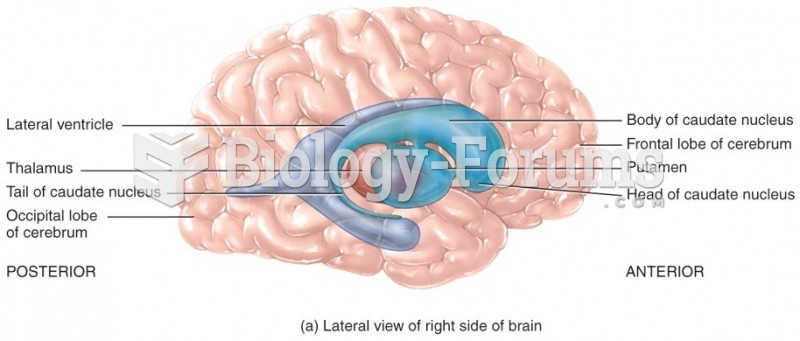|
|
|
Your heart beats over 36 million times a year.
More than 4.4billion prescriptions were dispensed within the United States in 2016.
Calcitonin is a naturally occurring hormone. In women who are at least 5 years beyond menopause, it slows bone loss and increases spinal bone density.
About 60% of newborn infants in the United States are jaundiced; that is, they look yellow. Kernicterus is a form of brain damage caused by excessive jaundice. When babies begin to be affected by excessive jaundice and begin to have brain damage, they become excessively lethargic.
The term bacteria was devised in the 19th century by German biologist Ferdinand Cohn. He based it on the Greek word "bakterion" meaning a small rod or staff. Cohn is considered to be the father of modern bacteriology.
 (a) Blue arrows (right side): External components of the innate immune system: human body with skin, ...
(a) Blue arrows (right side): External components of the innate immune system: human body with skin, ...
 Knead accessible leg and hip muscles; alternate with effleurage. Avoid massage of the medial side of ...
Knead accessible leg and hip muscles; alternate with effleurage. Avoid massage of the medial side of ...





